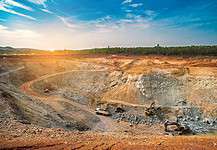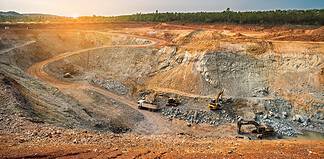EXTREME negligence was blamed for the Aberfan disaster of 1966, which saw 166 children and 28 adults lose their lives after a colliery spoil tip collapsed in the tiny Welsh village.
The coal tip reportedly took just five minutes to slide down the mountain and engulf a school, several houses and a farm in its path. It was an incident that devastated the coal mining village near Merthry Tydfil in South Wales and changed the face of mining regulations – prompting new legislation to resolve the absence of laws and regulations for mine and quarry waste tips and spoil heaps.
The incident took place early on 21 October, shortly after the school day had commenced.
The mudslide, consisting of excavated mining debris, had been stacked on top of a layer of highly porous sandstone consisting of underground springs from the National Coal Board’s (NCB) Merthyr Colliery, and located directly above Pantglas Junior School. Heavy rainfall allegedly triggered the slide from tip seven, turning the slag heaps into a liquefied state that moved down the slope at high speed. Miners on site were unable to warn the school of the impending slide as they had no means of communication at the time.
Classrooms on the north side of the school were impacted first; the children had reportedly only arrived minutes before disaster struck. More than 40,000 cubic metres of dense, solid debris covered the village, making the rescue mission extremely difficult.
Parents were among the first on the scene, followed by about 2000 emergency workers and miners. The rescue mission was hampered by thick fog and the potential danger of another slide. Within the first hour only a few children were pulled out alive. It took almost a week before all the bodies were recovered from the scene.
“I was just six-years-old at the time and remember watching the terrible images on the evening news as people tried desperately to rescue survivors. It is something that I will never forget,” UK resident Mark Kidger told the BBC.
The disaster had a profound and widespread effect, with many people blaming it on years of cheap coal. A disaster relief fund was set up to aid those affected.
More than 90,000 contributions raised around 1.75 million British pounds, however some feared it would impact any future compensation from the mine’s owner. The National Coal Board (NCB) was divided on how to distribute the money – to everyone in the village or just the bereaved. In the end, the donations financed a memorial, house repairs, holidays for villagers and a community hall. The NCB and Treasury refused to accept full financial responsibility, which resulted in 150,000 pounds from the fund being used to remove the remaining tips over the village.
 On 26 October 1966 a tribunal commenced to determine the causes of, and circumstances relating to, the Aberfan disaster. It sat for 76 days – the longest enquiry of its kind in British history at that time – due to various controversies. The people of Aberfan and neighbouring villages were adamant that the NCB be held responsible for placing a tip on a site that had not been properly investigated. A number of warning letters from engineers to the NCB were used as evidence, with concerns raised about the spoil being tipped on the mountain. These letters were allegedly ignored by the company’s management at the time.
On 26 October 1966 a tribunal commenced to determine the causes of, and circumstances relating to, the Aberfan disaster. It sat for 76 days – the longest enquiry of its kind in British history at that time – due to various controversies. The people of Aberfan and neighbouring villages were adamant that the NCB be held responsible for placing a tip on a site that had not been properly investigated. A number of warning letters from engineers to the NCB were used as evidence, with concerns raised about the spoil being tipped on the mountain. These letters were allegedly ignored by the company’s management at the time.
The tribunal retired to consider its verdict on 28 April 1967. Its report, published four months later, found the NCB responsible, but believed the blame should be shared among the NCB headquarters, the South Western Divisional Board and a number of individuals. The total absence of a tipping policy, or legislation dealing with the safety of tips in the UK, was also found to have contributed to the disaster. The NCB was held legally responsible, despite committing no regulatory offence during the incident as no miners were killed. The NCB was ordered to pay compensation for personal injuries and damage to properties. This was not repaid until 1997 at the instigation of Welsh Secretary of State, Ron Davies.
New legislation was enforced to prevent a similar tragedy from happening again. The British Government resolved the absence of laws and regulations governing mine and quarry waste tips and spoil heaps, with the Mines and Quarries (Tips) Act 1969 – an extension of the earlier Mine and Quarries Act 1954 – and was designed to prevent tips from endangering members of the public.
The Aberfan disaster was one of the UK’s most memorable after World War Two. It changed the way mine waste sites are managed and resulted in coal spoil tips being treated as engineering structures requiring proper design and maintenance.







































